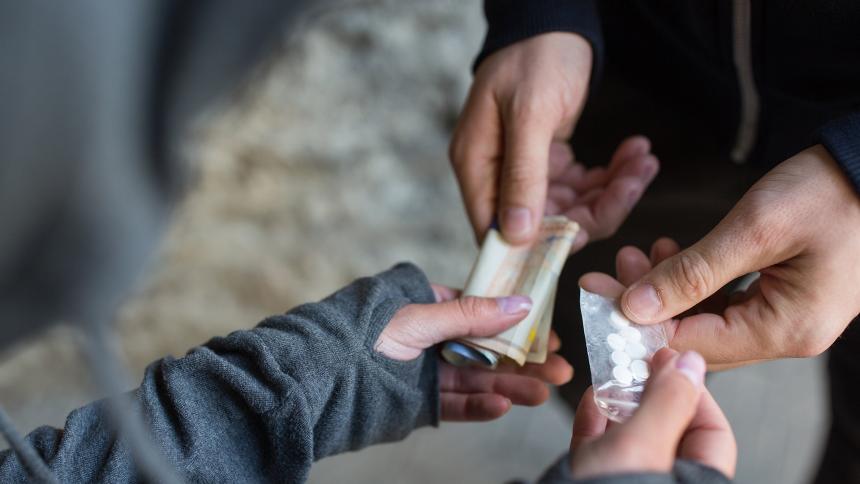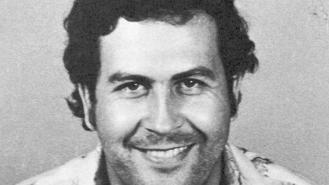
The Signs, Crimes and Grime of County Lines
Image: Shutterstock
When we think of crime, we tend to think of crazed killers and rapists prowling dimly-lit streets, drug dealers selling on busy corners, gangs of youths snatching phones and pickpockets lifting purses on heaving metro trains. We think of cities. But crime isn’t just an urban concern. True, organised and gang-related crime call the big cities home, but the scale, cost and impact of rural crime should never be underestimated.
We’re not talking about agricultural or livestock theft here when we say ‘rural crime’ (although such crime is thought to cost the UK economy more than £50m a year). We’re talking about the kinds of offences that most people would associate with inner cities: drug trafficking, drug dealing, knife crime, assaults, rapes and murders. This new kind of rural crime apes its more famous urban crime older brother. And by design. For the two are intrinsically linked.
'County Lines'
In the past few years, gangs of drug dealers from major British metropolitan areas have set up satellite operations outside of their usual areas. These untapped markets needn’t necessarily be ‘rural’ rural, they just need to be outside of the control of a major drug-dealing outfit to appeal. It’s effectively expansion and it’s pushing organised drug dealing into nearly every city and town in the United Kingdom. The idea is as simple as it is ingenious. It’s known as ‘county lines’ and it’s the biggest criminal issue currently facing police in this country.
To explain county lines, we need to think of a drug-dealing empire in strictly business terms for a moment. Imagine a gang in London that pushes Class A drugs with great success. They’re cash rich and have expanded their operation as far as possible in their home city without arrest, shutdown or out-and-out gang warfare. They’re ambitious and want to earn even more money, so it makes sense for them to open additional ‘shops’ elsewhere in the country… Find premises, recruit staff and increase profits.
Now just substitute ‘shops’ for ‘houses’ and ‘staff’ for ‘exploitable vulnerable people’ and you’re on the right track. These new bases (in the counties) are all run using dedicated mobile phone numbers (or lines). This is no unique franchising opportunity for the existing dealers in the county towns and cities, though. There are no profit sharing schemes, promotions or career paths here. There are just organised criminals and urban gangs preying on the weak to push their drugs under threat of violence and worse.
Rowdy Kinds?
These crime bosses, drug lords, gang members - call them what you will - they don’t approach local drug dealers or criminals to come on board with them. They need complete trust and total acquiescence. So the ‘staff’ they take on are exclusively people that they can intimidate and control. They’re almost always vulnerable and socially isolated including homeless people or residents of social housing; those connected to gang members or other criminals; people with learning difficulties and suffering from mental illness.
Many of those initially seduced by the lure of ‘a better lifestyle’ - and later forced to remain working for the gangsters - are poorer children living in residential care or those lacking safe or stable home environments with competent parental figures. These children are often the victims of neglect or physical or sexual abuse.
These vulnerable adults or children, once coerced, are expected to sell drugs and kick the majority of the profits back up to the gangs. These low level dealers will have to deliver the cash back to their masters in the city and return home with a new batch of drugs and repeat the process over and over and over again. Those behind the operation therefore minimise detection by avoiding being on the street or in transit with drugs at any time. The risk is entirely transferred.
Mounting Dimes
County lines is, unsurprisingly, big business. Crime may not pay in the long run if you’re caught but before then? It can pay pretty damn well indeed. The amount that a single line can potentially earn in a given day varies, based on variables such as location, competition and market size. The average line will net anywhere between £2,000-£5,000 each and every day, though. That’s a potential £35,000 a week, almost £150,000 per month and nearly £2m a year. For a single set-up. Consider that gangs often run several county lines and their income from them becomes sizeable, to say the least.
One drug-dealing network were known to have effectively sub-let a line to another gang for £10,000 a week.
The lines themselves are often sold within organised crime - as ‘going concerns’, if you like. Selling for anywhere between £25,000-£100,000 to other factions or gangs. Some have even been leased. One drug-dealing network was known to have effectively sub-let a line to another gang for £10,000 a week. To justify rents of £40k per month, the profits, one imagines, must be significant. The figures involved in this new kind of drug-pushing can be quite staggering.
Bounty of Crimes
At its essence, county lines is about moving drugs. Specifically heroin (in 79% of cases) and crack cocaine (in 70%). But party drugs like MDMA and ‘lesser’ drugs like cannabis and spice are often sold for supplementary income. Drugs - that’s the backbone of the operation. Other crimes are committed in order to facilitate the set-up, though. As is the nature of any criminal enterprise. County lines don’t just increase drug peddling, it brings with it a whole host of other offences into the area.
There is, of course, the wealth of crimes involved in the exploitation of vulnerable adults and children (many are detailed in theModern Slavery Act 2015). There’s not only drug trafficking involved, but also human and child trafficking too. Then there are the various financial crimes involved when the gangs collect and clean the cash. The tentacles of money laundering tend to be longer than most people imagine.
35% of police forces currently combating county lines within their jurisdiction report that sexual exploitation is linked too. Enforced prostitution is partly employed as a way to earn extra money, but also as gratification-based rewards for the young men coerced to work for the gangs. There are also reports of some young men themselves being sexually abused and assaulted by older gang members. Rates of kidnappings, burglaries and robberies also increase when new lines are introduced.
Perhaps the most concerning accompanying crimes, however, are violent ones. The connection between rising urban knife crime and acid attacks and county lines is established and clear. As is the rise in similar attacks outside of known gang territories. Where county lines activity is discovered, more young people with knives, firearms and corrosives are discovered. In fact, it’s believed that more than half of all acid attacks in the UK can be attributed to lines activity.
Worryingly, 42% of police forces in Britain report murders that are related to county lines. 18 UK forces reported a total of 19 homicides in 2017 that were connected. Worse still, that figure is believed to have risen sharply in 2018. Every year, more and more vulnerable young people are pressured into criminal activity, forced to break laws, threatened, intimidated, beaten, abused and even murdered.
Towns Decline
The scope of county lines cannot be overstated. According to recent figures released by the National Crime Agency (NCA), there are almost 200 urban drug-dealing gangs in operation who have expanded into the jurisdictions of 88% of British police forces. A2017 report from the National Crime Agency claimed that there are ‘at least 283 lines originating from London alone.’
A 2017 report from the National Crime Agency claimed that there are ‘at least 283 lines originating from London alone.’
Of course, drugs aren’t a new thing in smaller cities, towns and rural areas. Many smaller urban areas and settlements in the countryside have been blighted by high drug use for years. By this new systemic, highly organised and increasingly widespread method of distributing highly addictive and dangerous Class A’s is a real gamechanger.
There are inner city gangs controlling groups of vulnerable people in your area. They’re controlling them by proxy. They’re ‘cuckooing’ in their houses and taking over. They’re intimidating these people, assaulting them, stabbing them, raping them, throwing acid in their faces… They’re even killing them.
No longer can we look at the towns, cities and areas of the United Kingdom as separate little entities, unconnected to each other. It increasingly seems that Britain is becoming one large, blurred pocket of crime. At least it would be without the efforts of this country’s police forces. When county lines were first established, the gangs behind it were streets (and fields) ahead of the authorities. But no longer. Intelligence has improved, the set-ups, methods and logistics have been learned and operations get shut down on an almost daily basis.











